
After a very long run, it’s a good idea to begin recovery with a combination of a simple carb and protein, such as chocolate milk or nuts with fruit. These mini-meals can replenish the body quickly, and they have their place.
However, for normal running workouts, it’s a better idea to switch out simple carbs for carbs with a low glycemic index and foods with healthy fats. Getting enough vitamins, minerals, and nutrients such as antioxidants and anti-inflammatories could help ease muscle soreness and enhance the muscle-building process—which, in turn, could make you a faster runner.
If you’re interested in learning more, read through the following list of the 12 best recovery foods for runners. These foods focus on protein, vitamins, minerals, and other compounds that could speed up muscle recovery. At the end of this article, I’ll share three tips to try for easing muscle soreness after running.
12 Best Recovery Foods
Cruciferous Vegetables
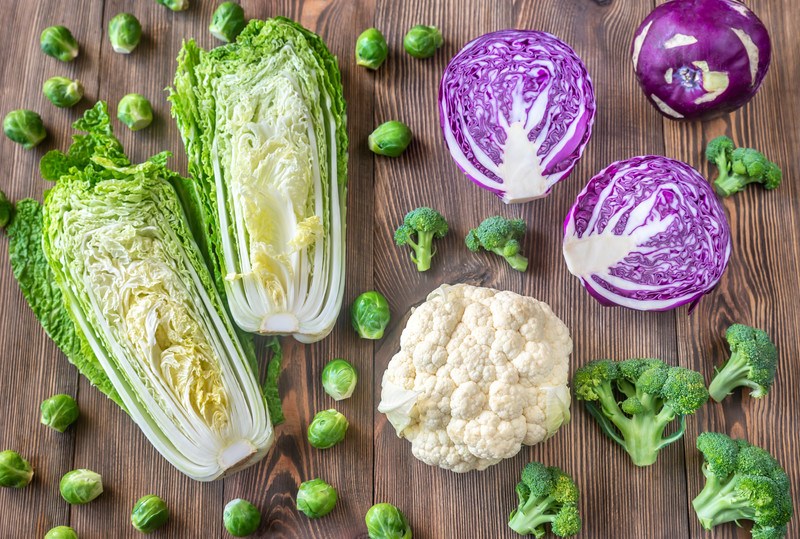
Cruciferous vegetables are great for recovering after a run because they are packed with vitamins, minerals, and other nutrients. Cruciferous vegetables, which include veggies like cabbage, cauliflower, broccoli, kale, and Brussels sprouts, are rich in fiber but low in calories, so they complement other foods without overloading your system with carbs.
Many of these foods are rich in potassium and other electrolytes, which can be lost through sweating during a run. For example, a cup of raw, chopped broccoli provides 6% of the daily recommendation for potassium, 5% for magnesium, and 3% for calcium.
Cruciferous vegetables also contain sulforaphane, a compound with strong antioxidant and anti-inflammatory effects that ease muscle pain following a workout. Sulforaphane has a host of other health benefits, too, including the ability to help keep aging hearts and muscles working properly and reducing the risk of some cancers.
Lean Beef
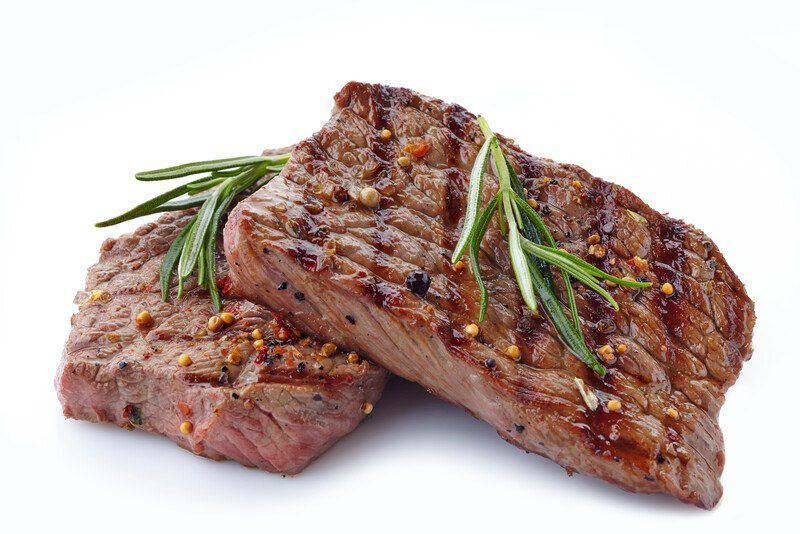
One thing that runners need to build muscles and speed is protein. Lean beef is an excellent source of protein, as well as minerals and B vitamins that help the body work properly.
A serving size of 4 ounces of 97%-lean ground beef provides 50% of the daily recommendation for protein, and it includes around 20 different amino acids. This serving size also contains 106% of the daily recommendation for vitamin B12, also known as cobalamin. Vitamin B12 is helpful to heal both muscle and ligament injuries.
Lean beef contains significant amounts of other B vitamins, too, which help with metabolism. It’s also rich in minerals such as iron, selenium, and zinc. Iron is important for runners because it’s used to make hemoglobin, which transports oxygen throughout the body. Selenium is also very helpful for muscle recovery. Four ounces of lean beef provide 36% of the daily recommendation for selenium.
Mushrooms

Mushrooms are often overlooked, but they could be just the powerhouse food to could boost your muscle recovery. The benefits you get could depend on the type of mushroom you eat. For example, cordyceps, which is included in many protein drinks, helps with oxygen availability, while Reishi mushrooms have strong antioxidant effects and reduce muscle fatigue.
Grocery-store variety mushrooms have a lot to offer, too. A half-cup serving of whole button mushrooms provides 2-6% of the daily recommendation for protein, as well as 4% for iron. A cup of diced portabella mushrooms provides 7% of the daily recommendation for potassium, and it’s also rich in B vitamins and selenium.
Protein powders that contain mushrooms are often specially formulated to help with muscle recovery. Because of this, protein powders are an excellent way to get the benefits of more than one type of mushroom at a time.
Poultry
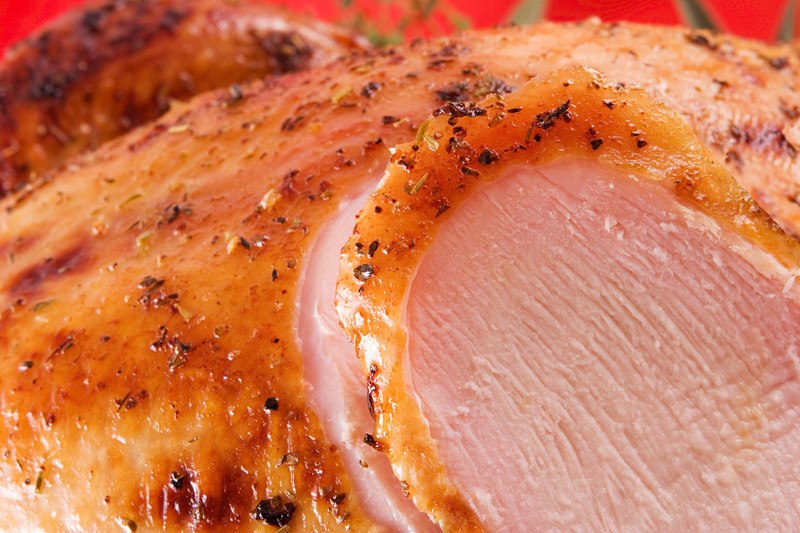
Like lean beef, poultry is a great source of protein, B vitamins, minerals, and other nutrients that could help runners recover quickly. For example, a cup of cooked, diced chicken breast provides 72% of the daily recommendation for protein, with 17% for cobalamin, 8% for both potassium and magnesium, and 55% for selenium.
Chicken breast really shines when it comes to providing the B vitamin niacin. Niacin is helpful for recovery because it reduces both joint and muscle fatigue. A cup-sized serving of diced chicken breast provides 78% of the daily recommendation for niacin.
Turkey is another good poultry choice. A three-ounce serving of roasted turkey breast contains 52% of the daily recommendation for protein, 14% for vitamin B12, 62% for niacin, and 47% for selenium. Turkey is also well-known for its relatively high levels of tryptophan, an amino acid with many uses in the body, including helping with muscle development and maintenance.
Nuts
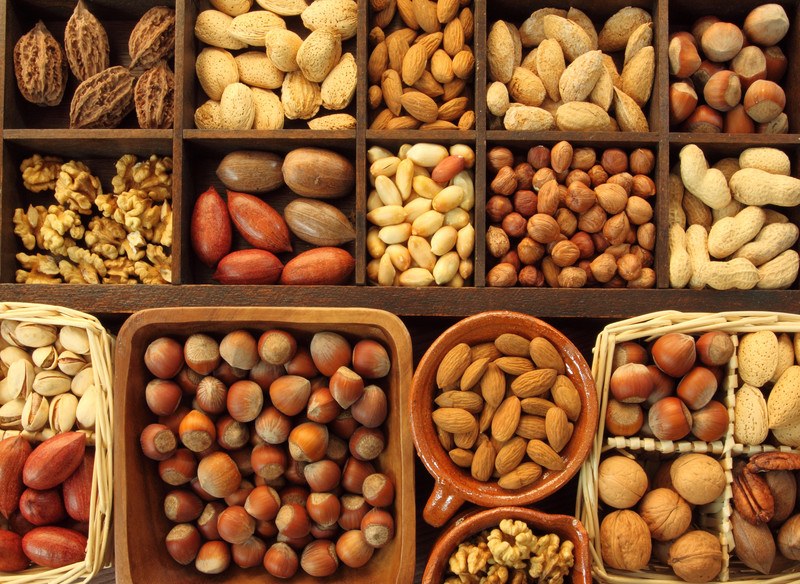
Nuts make a terrific, protein-packed snack that they can take with them on runs. Many of them also contain healthy fats that keep the nervous system healthy. An ounce of mixed nuts, with no peanuts, provides 9% of the daily recommendation for protein and 8% for dietary fiber.
It also contains 12% of the daily recommendation for vitamin E. Vitamin E could help with recovery after runs in several ways. Vitamin E helps repair cells, including cell membranes. It has antioxidant effects, and it helps relieve muscle soreness.
As with mushrooms, different types of nuts have their own unique nutrient profiles, which runners could use to get the particular nutrients they seek. For example, English walnuts have a relatively high amount of healthy fats, while almonds have been studied for their effects on muscle recovery. Brazil nuts are one of the best food sources of selenium, and cashews are rich in magnesium.
Citrus Fruits
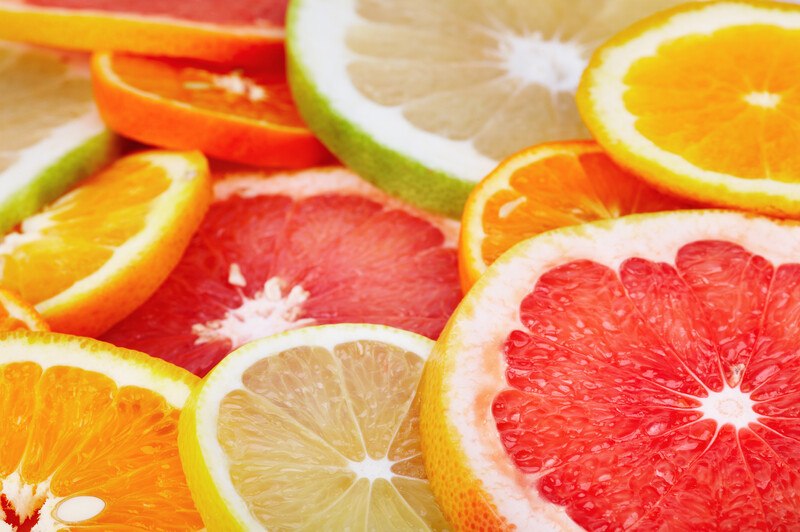
There are a few reasons why runners choose to bring citrus fruits into their after-run recovery meals. Citrus fruits are refreshing and hydrating. They’re also rich in vitamin C, which has both antioxidant and anti-inflammatory effects. One lemon provides 38% of the daily recommendation for vitamin C.
Grapefruit is another good source of vitamin C. Some sources indicate that drinking grapefruit juice following a workout or a run could help reduce muscle soreness.
Citrus fruits also contain soluble fiber, which can help build a healthy gut microbiome. This is important for runners because a healthy gut helps with amino acid synthesis, absorbing vitamins and minerals, and other processes that could speed up recovery following a run.
Fatty Fish
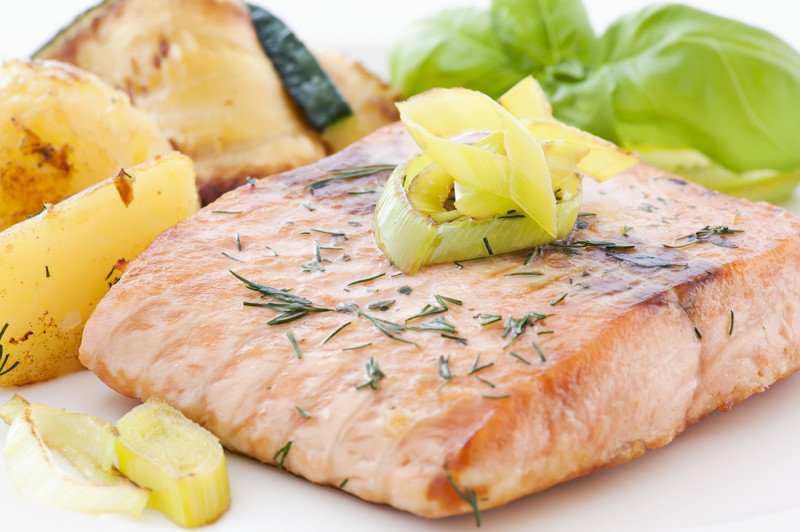
Fatty fish include cold-water fish such as salmon, trout, herring, mackerel, and sardines. These fish are rich in omega-3 fatty acids, which have several health benefits. Omega-3 fatty acids are good for heart health, the brain, and fighting depression. They’re also excellent at helping reduce inflammation, so muscles aren’t so sore after a run.
Some fatty fish are also rich in vitamin D. For example, a small salmon fillet provides around 116% of the daily recommendation for vitamin D. Some studies show that vitamin D is helpful for muscle recovery and normal muscle function.
Fish, like beef and poultry, are also an excellent source of protein. A small salmon fillet provides 88% of the daily recommendation for protein. It also provides 122% of the daily recommendation for selenium, 91% for niacin, and 315% for vitamin B12.
Berries
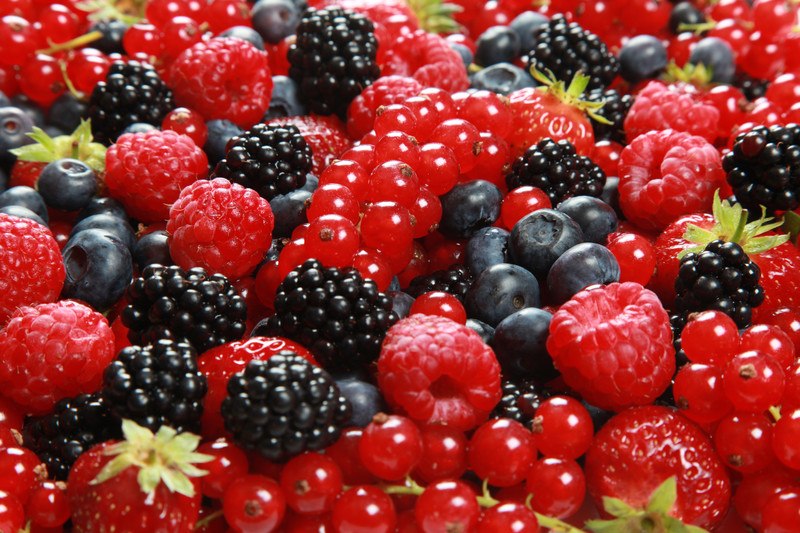
Berries are great for muscle recovery because they’re loaded with antioxidants and anti-inflammatory compounds.
Some sources indicate that blueberries are especially good at preventing muscle soreness, because of the phytonutrients they contain. Blueberries are also rich in vitamin C, which is a good antioxidant on its own. A cup of blueberries provides around 16% of the daily recommendation for vitamin C.
Berries also contain high water content, so they can be a refreshing way to get some carbs and water back into the body following a run.
Quinoa
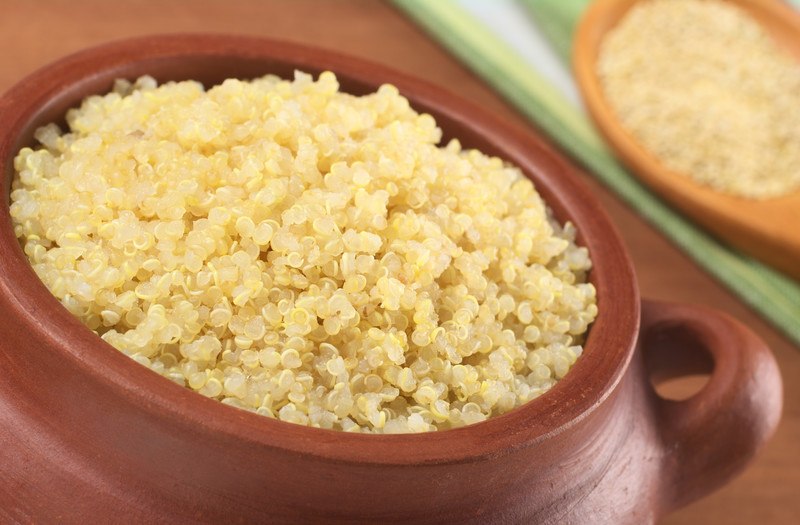
Quinoa is a seed that is often eaten in the place of rice. This seed is low in simple sugars but rich in fiber, which helps keep the gut healthy, and in protein. A cup of cooked quinoa provides 16% of the daily recommendation for protein and 19% for fiber.
Quinoa is also a good source of folate, B vitamins, vitamin E, and minerals such as magnesium, iron, selenium, potassium, and zinc. Zinc is important because it acts as a catalyst for helping muscles recover. A cup of cooked quinoa provides 18% of the daily recommendation for zinc.
Manganese is another interesting mineral found in quinoa. Manganese has been associated with easier recovery from strains and sprains. One cup of cooked quinoa contains 51% of the daily recommendation for manganese.
Chia Seeds
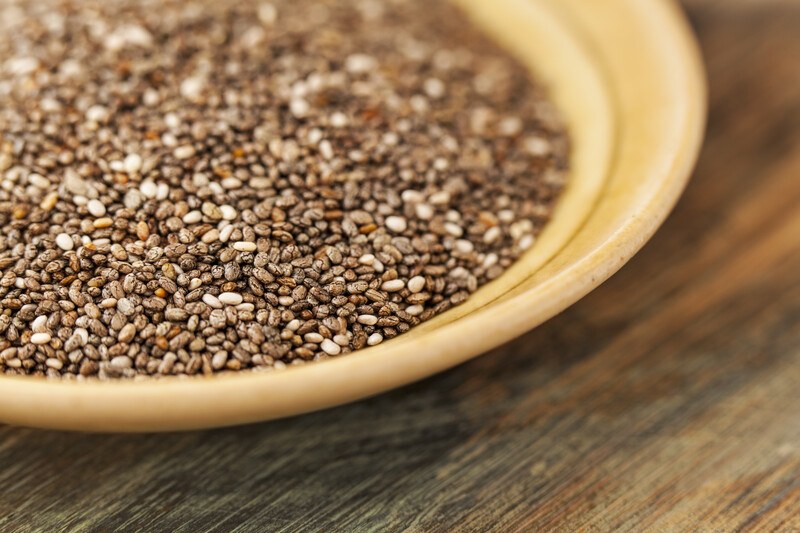
Chia seeds are tiny seeds from a mint plant native to Northern Mexico. Chia seeds are a superfood. They contain healthy fats, including alpha-linolenic and alpha-linoleic acids, the vegetable versions of omega-3 fatty acids. This provides chia seeds with a strong anti-inflammatory punch that could help keep muscle soreness at bay.
An ounce of chia seeds also provides 35% of the daily recommendation for dietary fiber and 9% for protein, with 16% for niacin, 34% for magnesium, 28% for selenium, and 12% for zinc. Chia seeds are a good source of calcium and iron, too.
Avocado
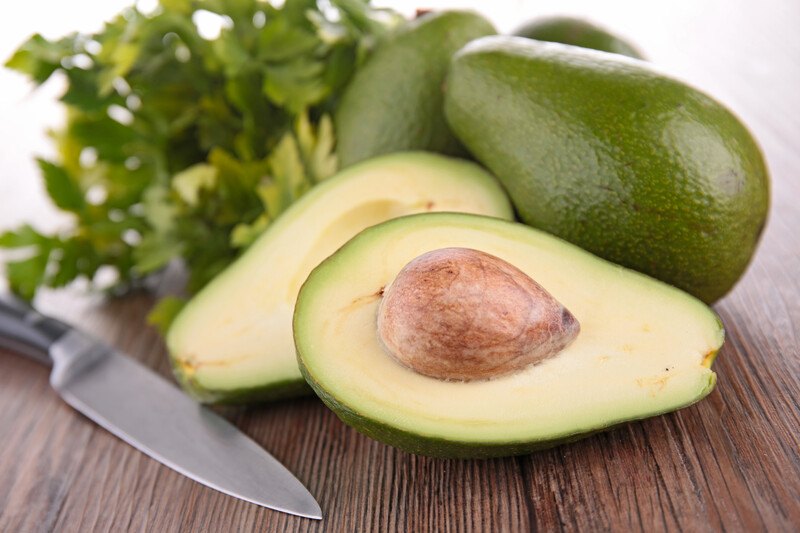
Like chia seeds, avocados are rich in healthy fats. Avocados contain the same type of monounsaturated fat found in olive oil, and it’s known for its ability to positively impact heart health as well as reduce inflammation in the body.
One avocado provides 15% of the daily recommendation for potassium. Avocados are a good source of other electrolytes, too, including calcium and magnesium.
When it comes to building a healthy microbiome that could impact muscle recoverin from running, avocados shine because of their high fiber content. One avocado provides 36% of the daily recommendation for fiber.
Eggs
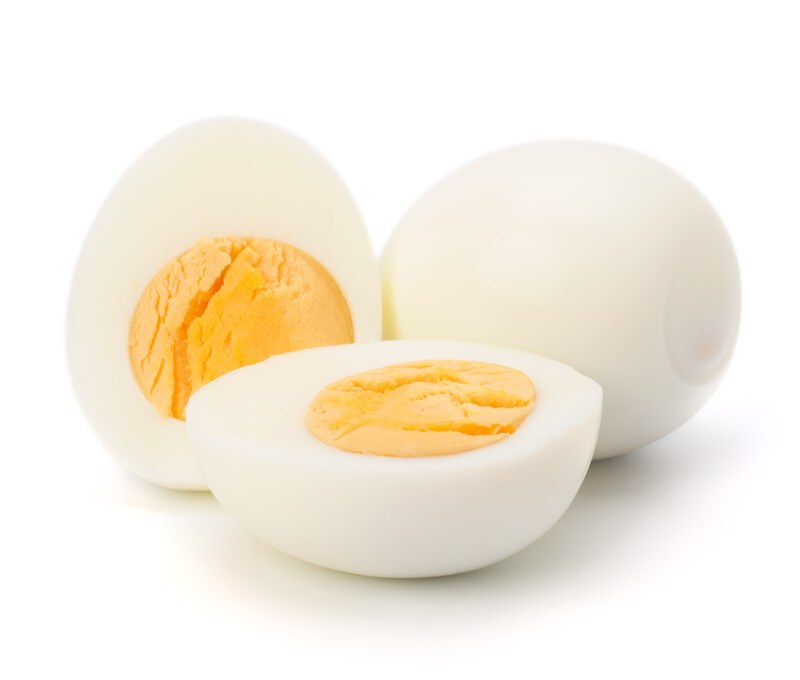
Eggs are a wonderful source of protein for runners who want to build muscle and get faster. One egg contains 13% of the daily recommendation for protein.
Eggs are rich in vitamins and minerals that help runners, too. A boiled egg provides 28% of the daily recommendation for selenium, 6% for zinc, 5% for vitamin D, and 15% for vitamin B12. Eggs are also one of the best food sources for choline, a vitamin B-like compound that helps prevent leg cramping and supports muscle recovery.
One of the most interesting nutrients that eggs provide is vitamin A. Vitamin A is well-known for being able to help with eye health, but it’s also important for synthesizing proteins and helping to build muscle. One egg provides 9% of the daily recommendation for vitamin A.
Three Tips For Easing Muscle Soreness

Now that you’ve read about the 12 best foods for runners, let’s talk about a few things you can do to ease muscle soreness and help with muscle recovery following running workouts. These tips can help you recover quickly so you can get out on more runs, more often.
Tip #1: Stay Hydrated
It’s common sense to bring a water bottle with you in the long run, but you should stay hydrated during the rest of the day, too. Staying hydrated can help you combat fatigue. Also, muscles need to be hydrated in order to build muscles following a run.
Tip #2: Add In Vitamin C Before Your Run
Drinking some grapefruit juice or eating a piece of fruit rich in vitamin C, before you run, could help manage muscles soreness. If you take it before your run, there’s some time for vitamin C’s antioxidant properties to kick in while you’re still working out.
Tip #3: Get A Massage
One of the best things about a massage is that it can help move some of the lactic acid buildups from runs and workouts out of your muscles. If you don’t have time or money for a massage, practice self-massage on the muscles that hurt the most.

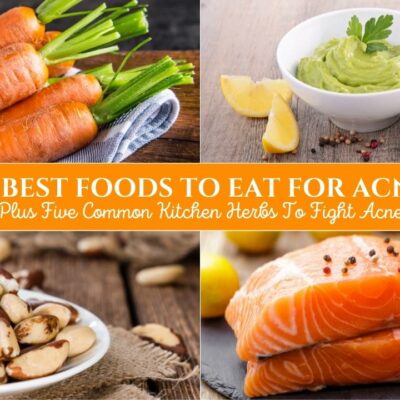

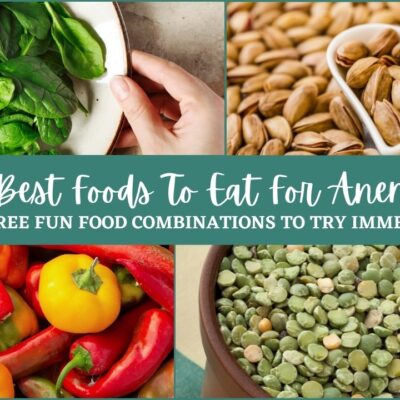
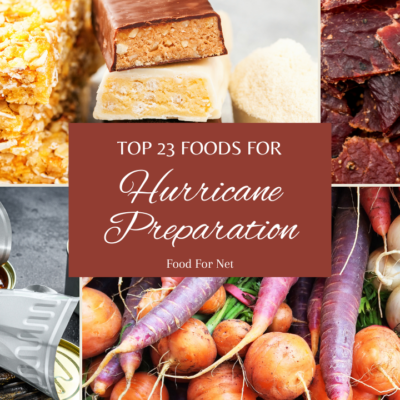


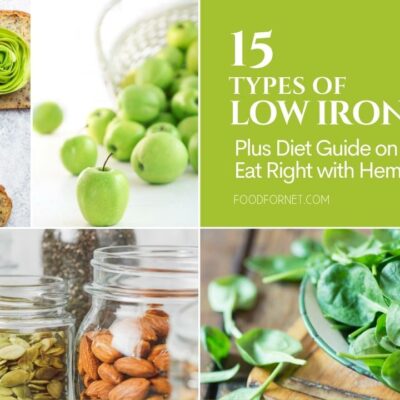

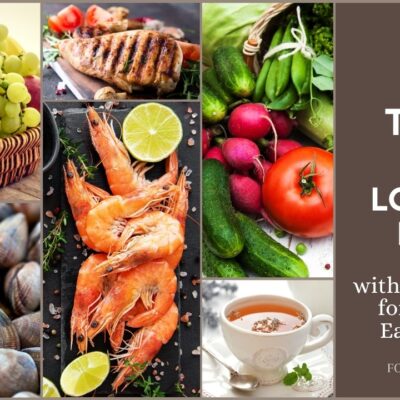




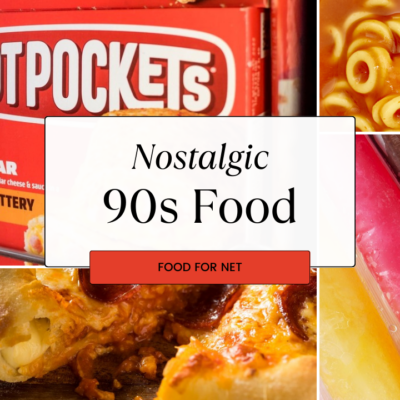
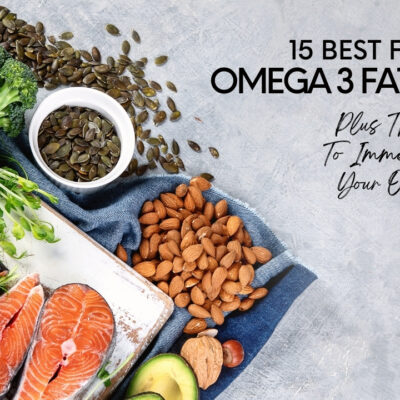

 Are Beets Good For You?
Are Beets Good For You?
Leave a Reply